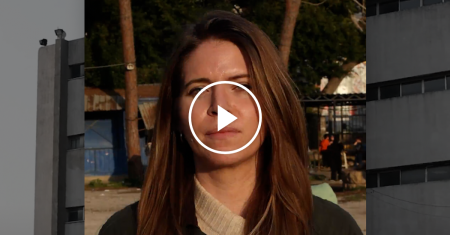This incident revolves around Heather Nelson, a 29-year-old housekeeper in Florida, who allegedly assaulted and robbed her 83-year-old employer on Christmas Eve after being denied a holiday bonus. Nelson had requested a $500 bonus, but her employer, an octogenarian, explained she couldn’t afford it. Nelson’s reaction was far from understanding; instead, she became enraged and resorted to violence and theft. Sheriff Wayne Ivey, in a press release from the Brevard County Sheriff’s Office (BCSO), detailed the events, highlighting Nelson’s aggressive behavior and the vulnerability of the victim.
Nelson forcibly snatched the checkbook from her elderly employer’s hand, causing significant pain and nearly breaking the woman’s wrist. Not content with this act of aggression, Nelson proceeded to steal a check from the checkbook and further compounded the victim’s distress by stealing Christmas cards containing checks intended for other recipients. This callous act demonstrated a disregard not only for her employer’s financial well-being but also for the festive spirit of giving associated with the holiday season. Sheriff Ivey’s description of Nelson as a “Grinch” underscored the heartless nature of her actions, especially considering the timing of the incident.
The financial exploitation didn’t end there. Nelson allegedly wrote herself a check for $1,400, significantly more than the requested bonus, and further abused her employer’s trust by using the victim’s credit card for personal expenses, including rent and other purchases. This blatant misuse of the victim’s financial resources demonstrated a calculated and opportunistic approach to theft, further exacerbating the harm inflicted on the elderly woman. Sheriff Ivey’s rhetorical question, “What’s next … kick her dog, too?” in the BCSO release conveyed the community’s outrage and disbelief at the extent of Nelson’s cruelty.
The investigation into Nelson’s crimes continued after the initial incident. Authorities were able to track her through the cleared check and the credit card transactions that were subsequently posted. This trail of evidence led to her arrest on January 7th, a couple of weeks after the Christmas Eve robbery. The delay in apprehension allowed time for the financial transactions to process and provide concrete evidence of Nelson’s criminal activity. The arrest brought a sense of justice and relief, demonstrating that such blatant violations of trust and acts of violence, particularly against vulnerable members of society, would not go unpunished.
Upon her arrest, Nelson faced a series of charges reflecting the gravity of her offenses. These included aggravated battery, reflecting the physical harm inflicted on the elderly victim during the robbery. The robbery charge addressed the forceful taking of the checkbook and other items. Forgery, fraud, passing a counterfeit instrument, and grand theft charges covered the illegal use of the stolen check and credit card. The cumulative weight of these charges painted a picture of a calculated and deliberate series of criminal acts motivated by greed and a complete lack of empathy for the victim. Sheriff Ivey’s sarcastic remarks about “extra gifts” for Nelson in the BCSO statement, including a mugshot, prison attire, and unappetizing jail food, further highlighted the seriousness with which law enforcement viewed her actions and the consequences she would face.
Nelson’s bond was set at $30,000, a figure that attempted to balance the need to ensure her appearance in court with the severity of the alleged crimes. She was subsequently released on January 9th after posting bond. This release, while standard procedure in many cases, also raised concerns about the potential for further criminal activity and the need for continued vigilance in ensuring her participation in the legal process. The legal proceedings that followed her arrest would determine the ultimate outcome of the case and the punishment Nelson would face for her alleged crimes against her elderly employer. This case serves as a stark reminder of the vulnerability of senior citizens and the importance of vigilance in protecting them from exploitation and abuse.











